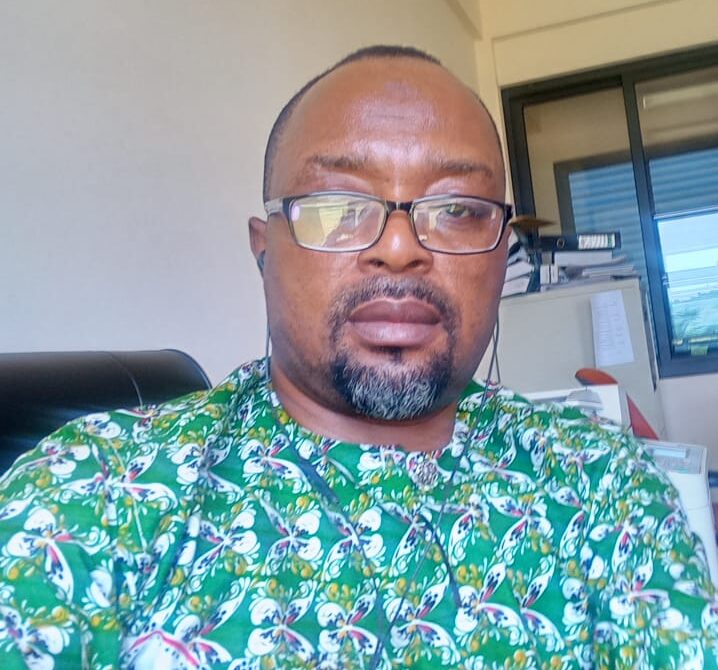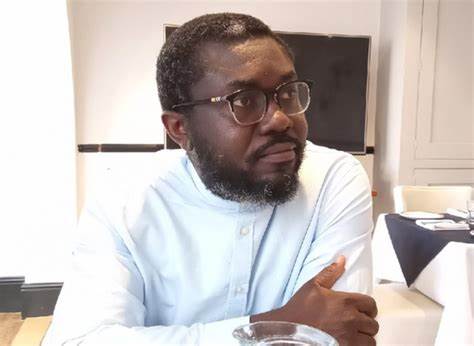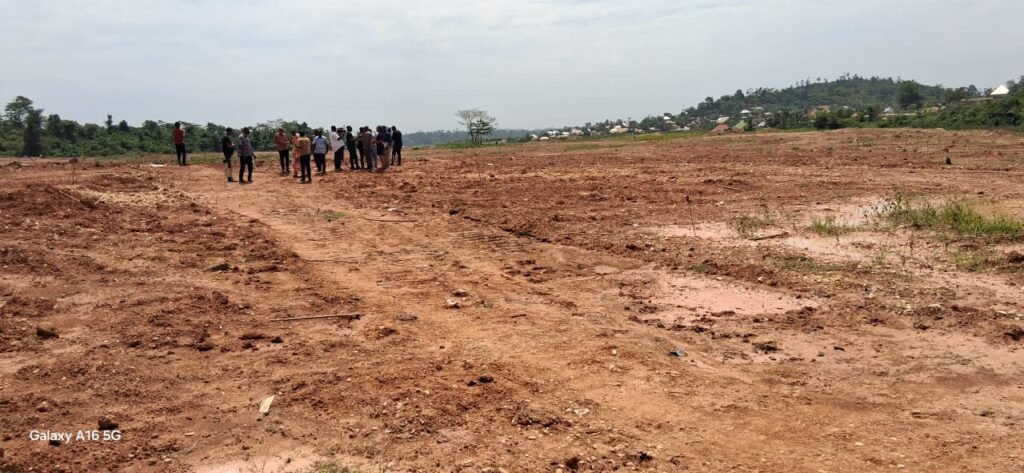
On Monday October 7, I sat in room 12 of the High Court listening to the judge deny Oliver Barker-Vormawor bail. His lawyer had put in a compelling argument, but the judge remained unconvinced.
As at that time, the now released protestors were still in detention without bail. They spent some 16 days going through that ordeal, a complete shadow upon our democracy.
While the right to protest is a cornerstone of democracy, increasingly, governments have resorted to suppressing dissent by detaining demonstrators. The very process of keeping protestors behind bars not only undermines democratic ideals but also serves as a dangerous precedent for the erosion of civil liberties.
In the case of Mawuse Oliver Barker-Vormawor, a Ghanaian lawyer, activist, and co-founder of the #FixTheCountry movement and Cambridge-Africa PhD student, his prolonged detention has raised serious concerns about the weaponization of bail and the broader implications of criminalizing dissent.
Refusing to release him on bail symbolizes a distortion of justice and is a severe indictment of the country’s democratic integrity. His continous detention and the silence of democratic institutions and Civil Society Organizations tell us that Ghana’s democracy is a sham and every silent voice is complicit in the active erosion of our demoratic principles.
The Right to Protest: A Fundamental Pillar of Democracy
At the heart of democracy lies the principle that citizens have the right to express their grievances, challenge authority, and demand accountability from their leaders.
In Ghana, the right to protest is protected under the 1992 Constitution. Key provisions include:
- Article 21(1)(d): This guarantees “freedom of assembly, including freedom to take part in processions and demonstrations.” This provision affirms that citizens have the right to gather and protest peacefully, expressing their views on matters of public interest.
- Article 21(1)(a): This article protects “freedom of speech and expression, which shall include freedom of the press and other media.” This broad protection supports citizens’ rights to voice their opinions, a key element of peaceful protest.
This right to protest is enshrined in the constitutions of many nations, as well as in several international human rights instruments, including:
- The Universal Declaration of Human Rights (UDHR): Article 19 guarantees the right to freedom of opinion and expression, while Article 20 provides the right to peaceful assembly and association. These rights form the foundation of democratic societies by allowing citizens to express their views and hold their governments accountable.
- The International Covenant on Civil and Political Rights (ICCPR): Article 21 of the ICCPR affirms the right of peaceful assembly, emphasizing that it shall not be restricted unless necessary in a democratic society for the protection of national security, public safety, or public order.
- The African Charter on Human and Peoples’ Rights (ACHPR): As a regional instrument, Article 11 of the ACHPR upholds the right to freedom of assembly, affirming that every individual has the right to freely assemble and protest as long as it is done peacefully.
Peaceful demonstrations offer a voice to the marginalized and serve as a mechanism for citizens to exercise their political will.
In a vibrant democracy, the government does not view protests as threats but as necessary expressions of public opinion. Detaining protesters sends a chilling message that dissent will not be tolerated, and it stifles free expression.
The detention of Oliver Barker-Vormawor epitomizes this growing problem. His activism through the #FixTheCountry campaign sought to address issues of economic hardship, corruption, and poor governance, all valid concerns in Ghana’s democratic context.
Instead of engaging in dialogue or allowing citizens to exercise their democratic rights, the government has chosen to silence him through detention. It will not be the first time bail has been weaponized against a man who has not been proven guilty by any court yet.
If a man avails himself to show up for trial of high treason, what is the essense of denying him bail for a misdemeanor? Let us not forget that this same man gave himself up for arrest willingly.
Weaponization of Bail: The Case of Oliver Barker-Vormawor
Bail is an essential aspect of criminal justice systems around the world. It allows individuals who have been accused of crimes to await trial without being incarcerated, thereby upholding the presumption of innocence. Bail is not meant to be punitive; rather, it is a means of ensuring that an accused person returns to court while maintaining their liberty in the interim.
The refusal to grant bail to Oliver Barker-Vormawor, despite his peaceful activism, represents a misuse of judicial power and signals that bail is being weaponized as punishment. His detention highlights this repression.
By withholding bail in politically sensitive cases, the state shows itself on a mission to silence critics, discourage activism and risks eroding public trust in democratic institutions and the judiciary.
The Dangerous Precedent of Detaining Activists
Oliver Barker-Vormawor’s detention is not just about him as an individual; it reflects a broader trend of criminalizing activism in many parts of the world, from Russia to Hong Kong, authoritarian regimes have used the detention of activists as a strategy to suppress dissent.
If the government can detain a well-known activist like Barker-Vormawor with impunity, what hope is there for ordinary citizens who wish to express their discontent? The message is clear: anyone who challenges the status quo may face imprisonment.
This creates an environment of fear and self-censorship, where citizens are afraid to demand better governance or hold their leaders accountable. Over time, this could weaken the very foundations of democracy, leading to a more authoritarian style of governance.
For a government already accused of promoting a ‘culture of silence’, this is damning!
In Ghana’s case, the country has long prided itself on being a beacon of democracy in West Africa. However, Barker-Vormawor’s continued detention calls this into question.
The government’s actions contradict its democratic credentials and set a dangerous precedent for future protests. If activists are routinely detained without bail, it sends the message that dissent will not be tolerated, and this could lead to greater instability in the long run.
The refusal to release Oliver Barker-Vormawor on bail has profound consequences not just for him, but for the entire justice system in Ghana. First and foremost, it damages the integrity of the judiciary. If bail decisions are influenced by political considerations, rather than the merits of the case, it erodes public confidence in the courts. A judiciary that is seen as complicit in the suppression of dissent can no longer be viewed as impartial.
A Call for Justice: Release Oliver Barker-Vormawor
The detention of Oliver Barker-Vormawor is a blatant violation of democratic principles, and the refusal to grant him bail further highlights the misuse of legal mechanisms to suppress dissent.
His release is not just about justice for one man; it is about preserving the democratic fabric of Ghana. The government must recognize that the right to protest is fundamental to democracy and that using the judiciary as a tool of repression will only harm the country’s democratic future.
Releasing Barker-Vormawor would send a powerful message that Ghana remains committed to upholding the rule of law, human rights, and democratic values. It is time to end the weaponization of bail and ensure that justice is applied fairly and impartially, without regard for political considerations. Only then can democracy truly thrive in Ghana.
Written By: Nuong Faalong
Nuong Faalong is a Ghanaian actress, journalist and activist. Widely known for her dynamic presence in media and advocacy. Her passion for gender equality and economic empowerment has made her a vocal advocate for policy reforms that favor women, particularly in economic opportunities.
Beyond her activism and journalism, she has a deep commitment to uplifting women’s voices and creating impactful change through media and policy.
The post Detention of Protesters: A threat to democracy and the case for Oliver Barker-Vormawor’s release first appeared on 3News.
Read Full Story


















Facebook
Twitter
Pinterest
Instagram
Google+
YouTube
LinkedIn
RSS